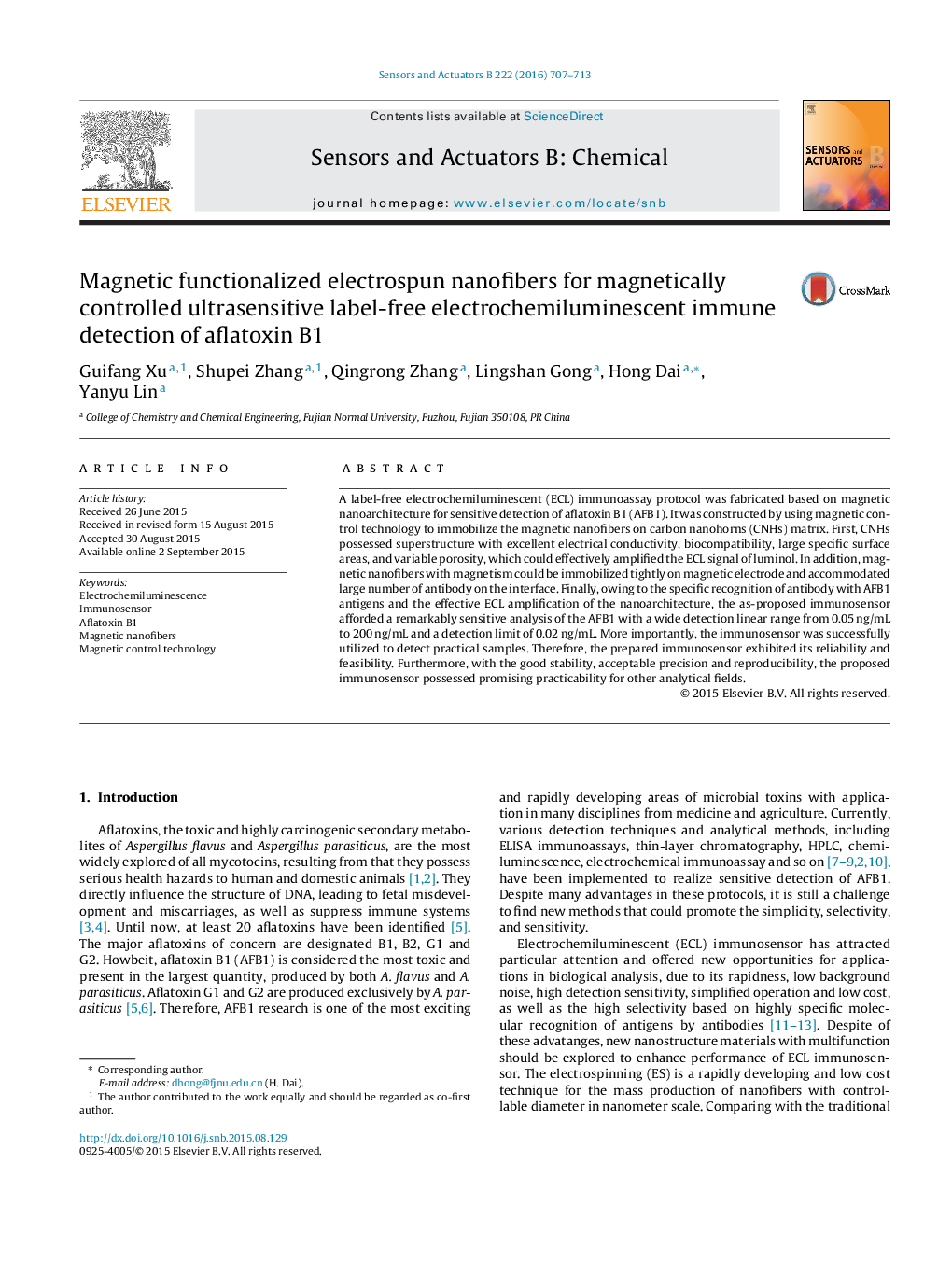| Article ID | Journal | Published Year | Pages | File Type |
|---|---|---|---|---|
| 7145430 | Sensors and Actuators B: Chemical | 2016 | 7 Pages |
Abstract
A label-free electrochemiluminescent (ECL) immunoassay protocol was fabricated based on magnetic nanoarchitecture for sensitive detection of aflatoxin B1 (AFB1). It was constructed by using magnetic control technology to immobilize the magnetic nanofibers on carbon nanohorns (CNHs) matrix. First, CNHs possessed superstructure with excellent electrical conductivity, biocompatibility, large specific surface areas, and variable porosity, which could effectively amplified the ECL signal of luminol. In addition, magnetic nanofibers with magnetism could be immobilized tightly on magnetic electrode and accommodated large number of antibody on the interface. Finally, owing to the specific recognition of antibody with AFB1 antigens and the effective ECL amplification of the nanoarchitecture, the as-proposed immunosensor afforded a remarkably sensitive analysis of the AFB1 with a wide detection linear range from 0.05Â ng/mL to 200Â ng/mL and a detection limit of 0.02Â ng/mL. More importantly, the immunosensor was successfully utilized to detect practical samples. Therefore, the prepared immunosensor exhibited its reliability and feasibility. Furthermore, with the good stability, acceptable precision and reproducibility, the proposed immunosensor possessed promising practicability for other analytical fields.
Related Topics
Physical Sciences and Engineering
Chemistry
Analytical Chemistry
Authors
Guifang Xu, Shupei Zhang, Qingrong Zhang, Lingshan Gong, Hong Dai, Yanyu Lin,
